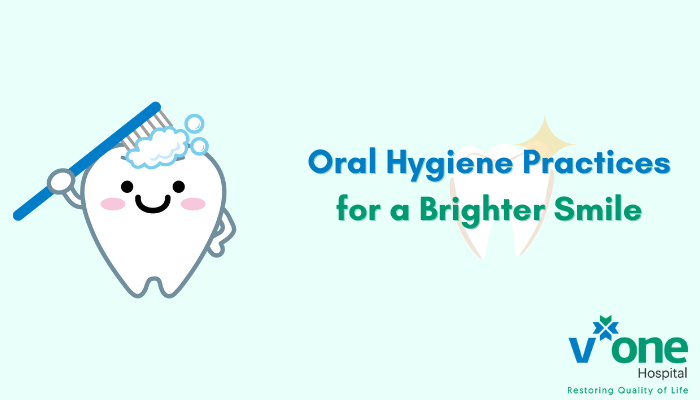7 Essential Tips for Optimal Oral Hygiene: Smile Bright
Dental or oral hygiene is more than just brushing and flossing your teeth daily; it is a vital part of your overall health. Not only does it help keep your teeth and gums healthy and prevent bad breath, but it can also have a significant impact on your overall health.
Neglecting oral hygiene can lead to several dental problems such as tooth decay, gum diseases, bad breath, and more severe health conditions such as heart disease, diabetes, and cancer.
Why is Dental Hygiene So Important?
It’s not just about having a beautiful and healthy smile. Good oral hygiene practices are vital for overall health. Poor dental hygiene can lead to several dental problems, including tooth decay, gum diseases, and bad breath. Tooth decay is caused by bacteria that feed on the sugars and starches in the foods we eat. Over time, the bacteria produce acid that eats away at the tooth enamel, leading to cavities. Gum disease, on the other hand, is caused by the buildup of plaque, a sticky film of bacteria that forms on the teeth. If left untreated, gum disease can lead to tooth loss and other serious health problems, such as heart disease and stroke. Regular brushing, flossing, and dental check-ups can help prevent these problems and keep your teeth and gums healthy.
Best Oral Hygiene Practices for Healthy Teeth and Gums
Here are some of the essential oral hygiene tips for healthy and strong teeth:
1. Brush Twice a Day
Brushing your teeth is one of the best things you can do for a healthy mouth. It is recommended to brush your teeth twice a day- once in the morning and once before going to bed, for at least 2 minutes each time. Use a soft-bristled toothbrush to clean your teeth thoroughly. Hold the brush at a 45-degree angle to your teeth, and brush in circular motions for two minutes. Be sure to brush all surfaces of your teeth, including the front, back, and chewing surfaces, as well as your tongue.
2. Floss Every Day
Flossing is essential for removing plaque and food particles between your teeth. It is recommended to floss at least once a day. Use about 18 inches of floss and wrap it around your middle fingers, leaving about an inch of floss between them. Gently glide the floss between your teeth using a back-and-forth motion and curve it around each tooth in a C-shape to remove any trapped particles. Be sure to floss all sides of each tooth, and use a clean section of floss for each tooth.
3. Use Mouthwash
Mouthwash can help kill bacteria in your mouth and freshen your breath. It is recommended to use an antiseptic mouthwash after brushing and flossing. Swish the mouthwash around your mouth for about 30 seconds and then spit it out. However, do not use mouthwash as a substitute for brushing and flossing.
4. Limit Sugary and Acidic Foods and Drinks
Sugary and acidic foods and drinks can cause tooth decay and erosion. Limit your intake of sugary and acidic foods and drinks such as soda, candy, and fruit juices. If you do consume these foods and drinks, rinse your mouth with water afterward to help reduce the effects. Try to eat a healthy, balanced diet rich in vitamins and minerals that includes plenty of fruits and vegetables, lean proteins, and whole grains. Foods such as dairy products, leafy greens, and lean proteins are all good for your teeth and gums.
5. Give Up Smoking
You should also avoid smoking and using other tobacco products. These can lead to gum disease and other oral health problems, as well as increase your risk for other health problems such as cancer and heart disease.
6. Protect Your Mouth
You should wear a mouthguard if you are going to participate in contact sports or other activities that could result in a blow to the face. This will help protect your teeth and gums from injury.
7. See your Dentist Periodically
Visit your dentist regularly for checkups and cleanings. You should have a dental checkup and cleaning every six months to a year, depending on your individual needs. During these appointments, your dentist will examine your teeth and gums for any signs of decay or disease and provide you with any necessary treatments or recommendations. Your dentist can detect and treat dental problems early before they become more serious. They can also remove plaque and tartar buildup, which can help prevent gum disease.
By taking up good oral hygiene practices, you can take care of your mouth and body. It starts with habits as simple as brushing and flossing your teeth and scheduling regular appointments with your dentist. Try eating a healthy diet, avoiding sugary and acidic food and drinks, and quitting smoking if you do smoke, and you not only prevent tooth decay and gum disease but can also improve your quality of life. By taking care of your teeth and gums, you can enjoy a healthy smile for years to come.

